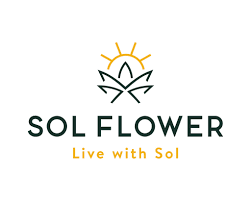


































Arizona has comprehensive medical and recreational cannabis programs. Medical marijuana was legalized in 2010, followed by recreational legalization in 2020. Adults 21+ can possess up to 1 oz of cannabis and grow up to 6 plants at home. Medical patients register with the ADHS ($150 fee, valid for 2 years) after getting a doctor's certification. Benefits of having a medical card include higher possession limits (2.5 oz vs. 1 oz), protection from employment discrimination for positive drug tests, access for patients under 21, and exemption from the 16% excise tax on recreational sales. The state provides legal protections for medical patients, including measures preventing discrimination in housing, education, and employment. Arizona also allows for expungement of certain marijuana-related convictions.
Both medical patients and recreational users can purchase cannabis at licensed dispensaries. As of late 2023, there were 169 recreational cannabis establishments in Arizona with 168 operating facilities.
Qualifying conditions include: cancer, glaucoma, HIV/AIDS, hepatitis C, ALS, Crohn's disease, Alzheimer's disease (agitation), PTSD, and conditions that cause cachexia, severe/chronic pain, severe nausea, seizures, or muscle spasms. The Department of Health Services can approve additional conditions.
The Arizona Department of Health Services (ADHS) regulates both medical and recreational cannabis in the state.
Yes, patients must register with the Arizona Department of Health Services to receive a medical marijuana card.
Both medical patients and recreational users can purchase cannabis at licensed dispensaries. As of late 2023, there were 169 recreational cannabis establishments in Arizona with 168 operating facilities.
The application fee is $150, or $75 for those participating in the Supplemental Nutrition Assistance Program (SNAP). Medical marijuana cards are valid for 2 years before needing renewal. Physician certification fees are separate and typically range from $75-150.